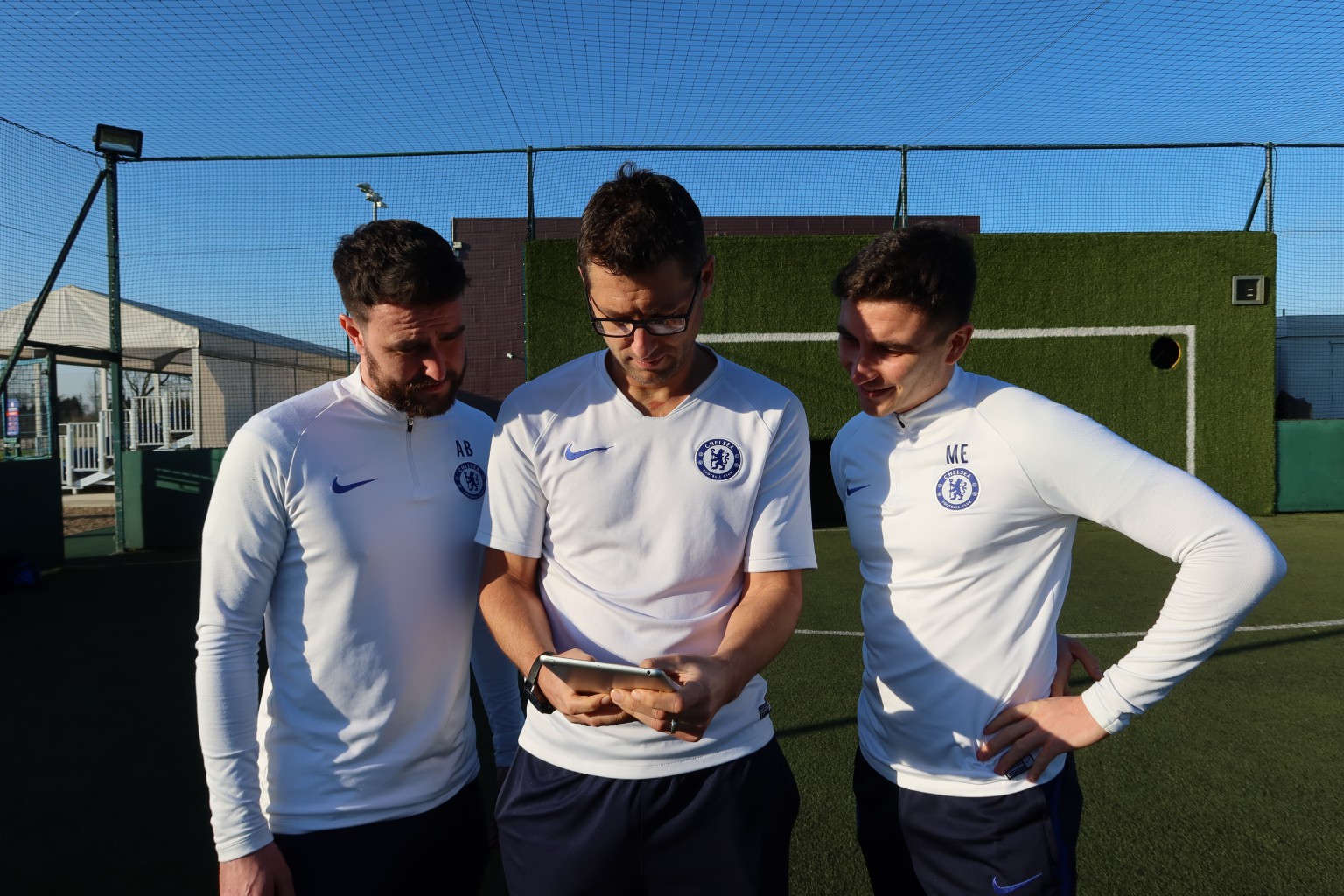Cobham, UK (February 12, 2020) Can technology – often seen as detrimental to kids’ wellbeing – be used creatively to drive positive change? Ben Smith, Head of Research and Innovation at Chelsea FC believes it can be, and given the success the first team are showing with their youth academy products, it would be hard to argue with his vision. From our first conversation with Ben, it was clear the club’s philosophy and vision for the Academy was very detailed. With the space of sports technology becoming increasingly more convoluted, it is always refreshing to hear someone outline what their needs are, and demonstrate how they intend to adopt different products in order to achieve their goals.
One of the topics that Ben touched on was the decline of ‘self discovery.’ The modern athlete is blessed with more resources than ever before. With schedules being packed tight and a high emphasis on maximizing talent, most of the learning tends to take place in a very organized, coach led fashion. To explore the topic further, we asked Ben for his thoughts, and why he chose PlaySight to help him address this topic.
“We believe we can use technology solutions such as PlaySight to help create more exciting and engaging free-play areas to encourage more independent training and play with your (team) mates.”
Ben Smith:
“Our Academy players are aged 8-21, and the way they behave and engage with the world reflects changes across wider society. Technology continues to make everything faster, more convenient and really exciting. It plays a huge part in their personal and professional footballing lives, whether that be smartphones, tablets, athletic monitoring or the latest filming and analysis solutions. Used in the right way, these tools enable better insights, clearer communication and improve accountability – all of which add real value to our player development program.
However, there can be unintended consequences of a highly structured, efficient development program. Many players have limited relaxation/unstructured time within a highly demanding program, lacking many traditional opportunities for individual practice or ‘knocking about’ with your mates. These loose environments can be an important way to explore creativity and to develop a love of the game.
We believe we can use technology solutions such as PlaySight to help create more exciting and engaging free-play areas to encourage more independent training and play with your (team) mates. We think technology can be used to encourage experimentation and individual practice, providing videos of anything a player has done in their training environment in a convenient and timely manner, e.g. video of just the bits you want to see, on your phone, and accessible from anywhere. This universal access helps players use small pockets (often 10 minutes) of time, relaxing in the lounge, waiting for the train, to engage with and reflect on these experimental or fun session. They have the opportunity to evolve ideas of how to improve, what to do differently the next time they take the pitch, and ultimately take responsibility for their own improvement and development through technology-enabled self-discovery.”
As Ben has eluded to, technology on its own isn’t necessarily a good or bad thing for sport. The advances in video and performance technology have given young athletes access to tools that previous generations never had, but that hasn’t necessarily had completely positive outcomes. Finding ways to make technology fuel the fun, creative, and ultimately help facilitate positive development, is something that leading sports organizations – like Chelsea FC – are focused on.
This article was written by Rodney Rapson, PlaySight’s Managing Director for Europe & UK.
